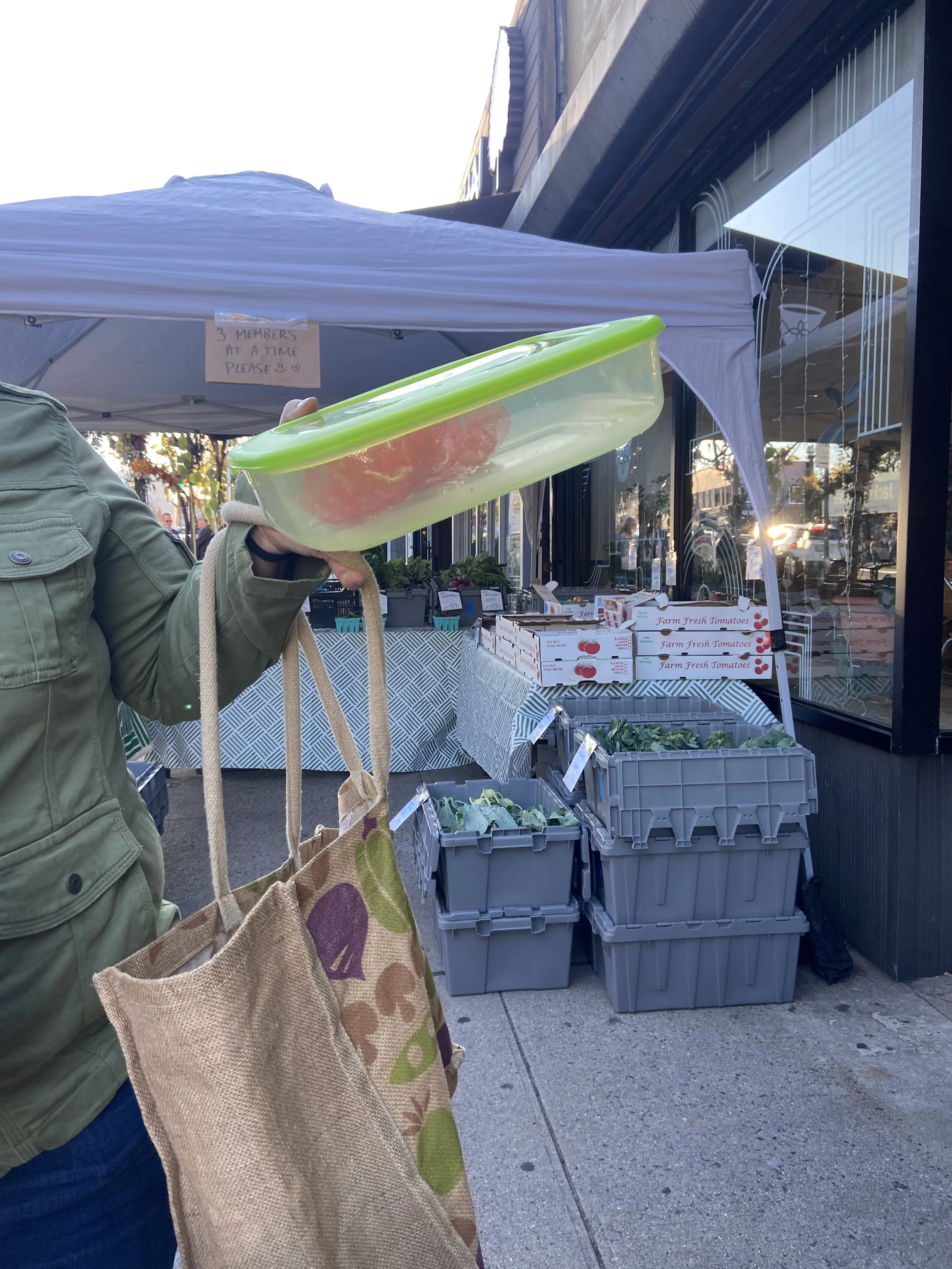RECIPES
RECIPES
We want to encourage members to try new veggies, or try new ways of cooking familiar ones. Our weekly member newsletter always has a new one, and you can review past recipes in our collection.
member Handbook
Misplaced your member agreement? You can see a digital version here.
LETS CHECK IN
This CSA is about community building, so our touchpoint with you really matters. Please be sure to check in with us before heading under the tent to get your share. Here’s why:
We likely have important guidance about distribution to give you each week
We want to be sure to manage traffic to keep things running smoothly
We like to hear your feedback
Getting to know each other and checking-in with each other builds community and solidarity—this is how we connect members with resources and opportunities
SHARE SPLITTING
You can split a share with a friend! Things to consider:
Share splitters are responsible for coordinating schedules—if you get your wires crossed and both of you show up, the second to arrive may not be able to collect their share. If quantities allow, we may make a one time allowance for both to collect their share and skip the following week.
We will not mediate conflict between share splitters—We can refer you to mediation sources. If conflict arises, we will defer to the person whose payment information is on file until the conflict is resolved.
SkiPPING A WEEK
You have several options if you need to miss a week of CSA pick-up:
Donate your share—we handle making sure the veggies you don’t pick up get to a community fridge.
Send a stand-in—let us know in advance and you can have a friend or relative come pick up your share.
Claim a vacation week—use Grownby to get credit for future purchases with us (sauce boxes, pickling boxes, etc).
Take double—For members who pay with SNAP/EBT, you can pay in advance and take two shares (either before the missed week or after).
PRODUCE STORAGE BEST PRACTICES
-
We provide compostable (home compost, not comercial compost) plant based cellophane bags for loose greens.
Smaller veggies like cherry tomatoes, okra, and shishito peppers will come in recyclable pulp cartons, and we have net caps available to cover them for the commute home. (We are also happy to take these back the following week!)
Eggs will come in a recyclable carton. (We are also happy to take these back the following week!)
We’ve seen members bring rigid reusable plastic containers to get larger tomatoes home safely, reusable bags for greens, or the final destination containers to reduce repacking at home. Do what makes sense for you and feel free to leave our containers with us!
-
Tomatoes: Unripe tomatoes should stay out on the counter, not in a container, and out of the sun, until they are ripe. Once fully ripe, tomatoes can be refrigerated for several days without impacting quality.
Greens: In the fridge, in our cellophane bags, or in your own resealable bags. If your fridge tends to be drier, a damp paper towel can be used to extend shelf life.
Herbs: Many herbs benefit from having their cut ends in water, a plastic bag over the top, and stored in the fridge. If space is limited a damp paper towel in a zip bag can replace water. Basil should be in water on the counter, with water replaced every few days like cut flowers.
Onions & Potatoes: store in a dark, cool, dry place. Once one goes bad it will turn the rest, so check them occasionally. Be sure NOT to store your onions next to your potatoes; they don’t like that.
Carrots and other roots: Roots have a tendency to dry out once out of the soil, but you can get a long shelf life by wrapping them in a damp towel and sealing them in a zip back in the fridge.


